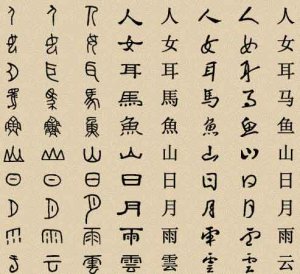Presented By: Confucius Institute at the University of Michigan
3500 characters vs. 26 letters: Efficient or Inefficient?
Presented by Kening Li, Asian Languages and Cultures, U-M

People unfamiliar with the Chinese language are often amazed by the sheer number of characters used in the written language: Chinese characters 汉字. A Chinese user needs to know about 3,500 characters in order to have a >99% comprehension of the content of an ordinary newspaper article. Compared to the 26 letters in the Roman alphabet, that seems like a lot. But is this an accurate comparison? Are characters in Chinese really equivalent to the letters in an alphabetic language? Does having over 3,000 common characters really make Chinese inefficient, placing an extra burden on learners? In this talk, I will show how characters function in Chinese by discussing what the characters really stand for; the difference between characters and words; how words are formed in Chinese—and how that process differs in Classical vs. Modern Chinese. No linguistic background is needed.
Biography
LI Kening, Director of the Chinese Language Program in the Department of Asian Languages and Cultures at University of Michigan. She received her MA and PhD in linguistics from the University of Washington. Afterwards she taught in the Department of Asian Languages and Civilizations at Harvard University. Later, as a faculty member at the University of California, Berkeley, she worked in Beijing, China directing the prestigious Inter-University Program (IUP) for Chinese Language Studies. Her research interest is Chinese linguistics and how to apply linguistic theories to language teaching.
Biography
LI Kening, Director of the Chinese Language Program in the Department of Asian Languages and Cultures at University of Michigan. She received her MA and PhD in linguistics from the University of Washington. Afterwards she taught in the Department of Asian Languages and Civilizations at Harvard University. Later, as a faculty member at the University of California, Berkeley, she worked in Beijing, China directing the prestigious Inter-University Program (IUP) for Chinese Language Studies. Her research interest is Chinese linguistics and how to apply linguistic theories to language teaching.